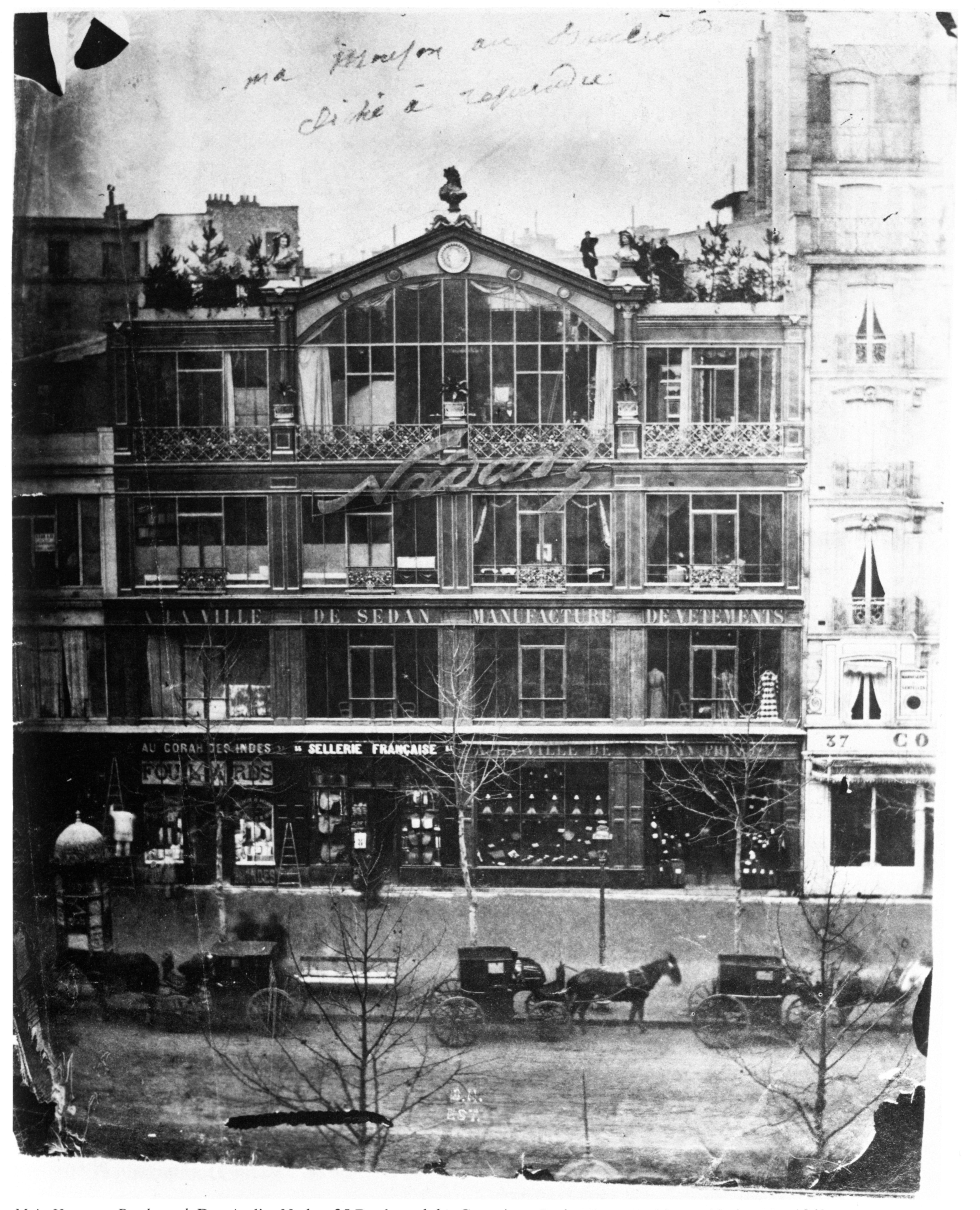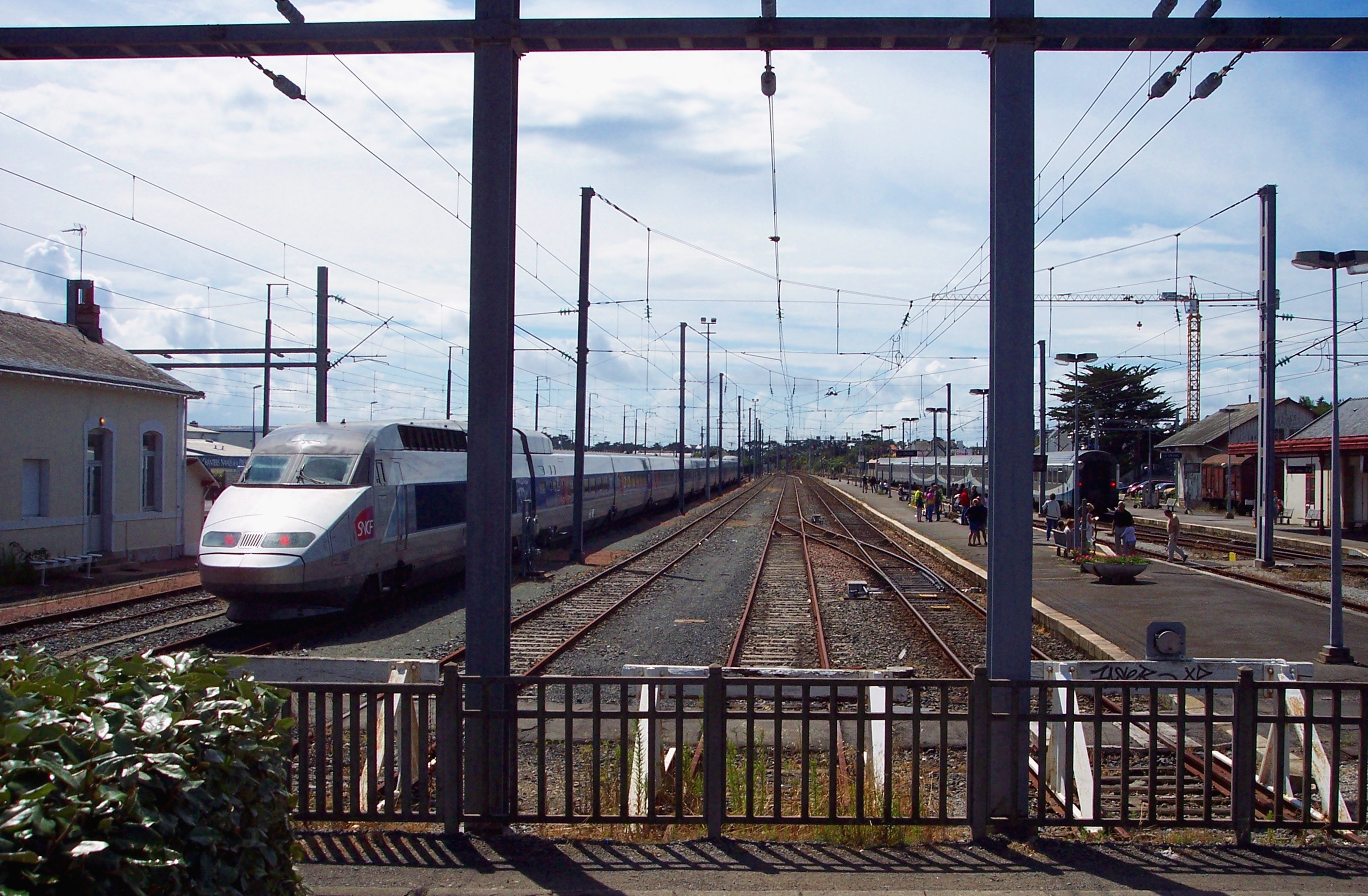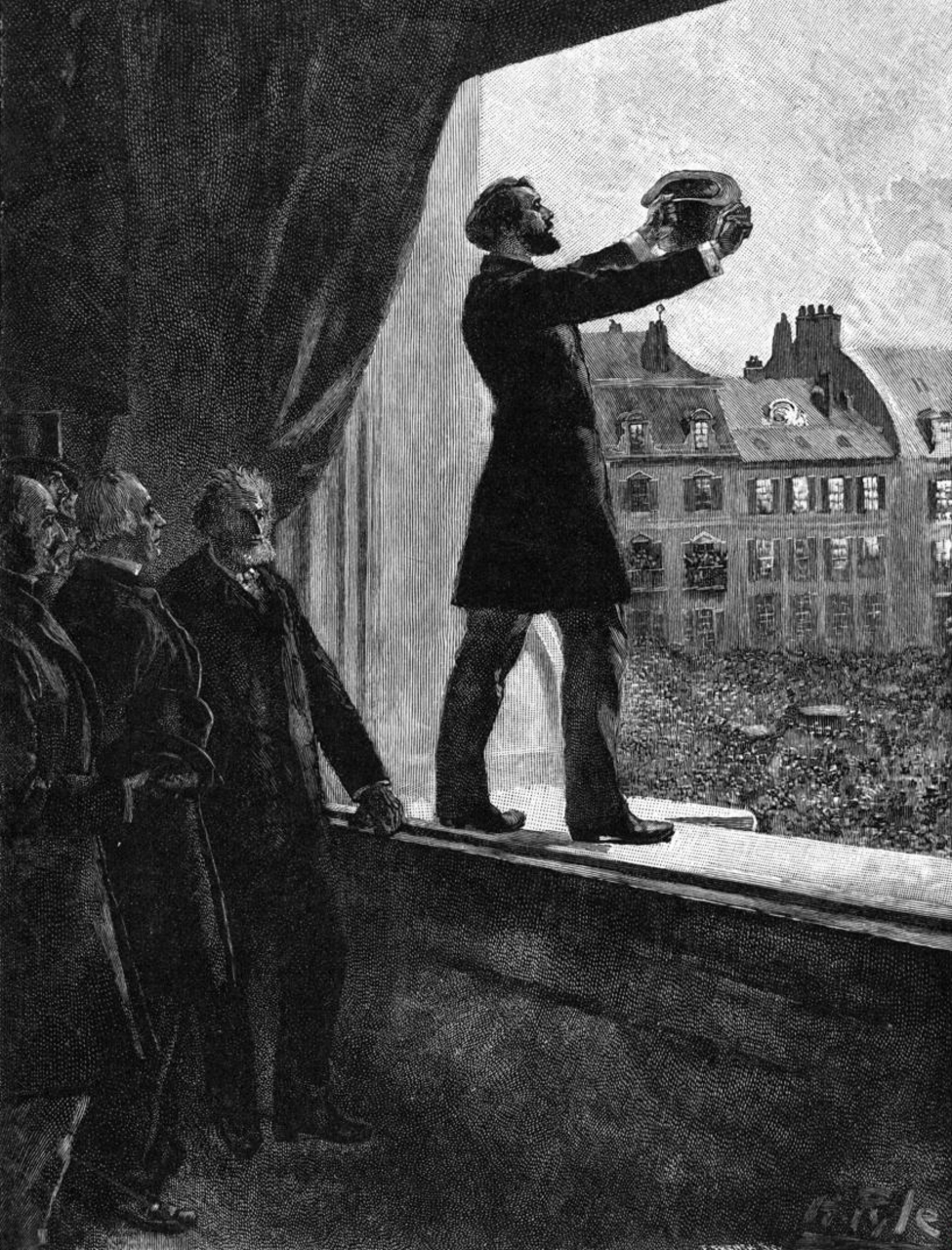|
René Waldeck-Rousseau
Pierre Marie René Ernest Waldeck-Rousseau (; 2 December 184610 August 1904) was a French Republicanism, Republican politician who served for three years as the Prime Minister of France. Early life Pierre Waldeck-Rousseau was born in Nantes, Brittany. His father, René Waldeck-Rousseau, père, René Waldeck-Rousseau, a barrister at the Nantes bar and a leader of the local Republicanism, republican party, figured in the French Revolution of 1848, revolution of 1848 as one of the deputies elected to the Constituent Assembly for Loire Inférieure. The son was a delicate child whose eyesight made reading difficult, and his early education was therefore entirely oral. He studied law at Poitiers and in Paris, where he took his licentiate in January 1869. His father's record ensured his reception in high republican circles. Jules Grévy stood sponsor for him at the Parisian bar association, bar. After six months of waiting for briefs in Paris, he decided to return home and to join t ... [...More Info...] [...Related Items...] OR: [Wikipedia] [Google] [Baidu] |
Nadar (artist)
Gaspard-Félix Tournachon (; 5 April 1820 – 20 March 1910), known by the pseudonym Nadar () or Félix Nadar'','' was a French photographer, caricaturist, journalist, novelist, balloonist, and proponent of heavier-than-air flight. In 1858, he became the first person to take aerial photographs. Photographic portraits by Nadar are held by many of the great national collections of photographs. His son, Paul Nadar, continued the studio after his death. Life Gaspard-Félix Tournachon (also known as Nadar) was born in early April 1820 in Paris, though some sources state he was born in Lyon. His father, Victor Tournachon, was a printer and bookseller. Nadar began to study medicine but quit for economic reasons after his father's death. Nadar started working as a caricaturist and novelist for various newspapers. He fell in with the Parisian bohemian group of Gérard de Nerval, Charles Baudelaire, and Théodore de Banville. His friends picked a nickname for him, perhaps by a playful ... [...More Info...] [...Related Items...] OR: [Wikipedia] [Google] [Baidu] |
Loire Inférieure
Loire-Atlantique (; Gallo: ''Louére-Atantique''; ; before 1957: ''Loire-Inférieure'', ) is a department in Pays de la Loire on the west coast of France, named after the river Loire and the Atlantic Ocean. It had a population of 1,429,272 in 2019.Populations légales 2019: 44 Loire-Atlantique INSEE History Loire-Atlantique is one of the original 83 departments created during the French Revolution on March 4, 1790. Originally, it was named Loire-Inférieure, but its name was changed in March 9, 1957 to Loire-Atlantique. The area was formed from the |
French Judicial System
Status and organisation France's independent court system enjoys special statutory protection from the executive branch. Procedures for the appointment, promotion, and removal of judges vary depending on whether it is for the ordinary ("") or the administrative stream. Judicial appointments in the judicial stream must be approved by a special panel, the High Council of the Judiciary. Once appointed, career judges serve for life and cannot be removed without specific disciplinary proceedings conducted before the council with due process. The Ministry of Justice handles the administration of courts and the judiciary, including paying salaries or constructing new courthouses. The Ministry also funds and administers the prison system. Lastly, it receives and processes applications for presidential pardons and proposes legislation dealing with matters of civil or criminal justice. The Minister of Justice is also the head of public prosecution, though this is controversial since it is ... [...More Info...] [...Related Items...] OR: [Wikipedia] [Google] [Baidu] |
Minister Of The Interior (France)
Minister of the Interior (, ) is the interior minister of French government, traditionally responsible for internal security and territorial administration. The minister ensures the maintenance and cohesion of the country's institutions throughout the territory. The current Minister of the Interior is Bruno Retailleau, who has held the position since September 21, 2024. Responsibilities The Minister of the Interior is responsible for the following: * The general interior security of the country, with respect to criminal acts or natural catastrophes ** including the major law-enforcement forces *** the National Police *** the National Gendarmerie for its police operations since 2009; as a part of the French Armed Forces, the Gendarmerie is administratively under the purview of the Ministry of Armed Forces ** General directorate for civil defence and crisis management ( Sécurité Civile) *** the directorate of Firefighters ( Sapeurs-Pompiers) * the granting of identity ... [...More Info...] [...Related Items...] OR: [Wikipedia] [Google] [Baidu] |
Jules Ferry Laws On Public, Laic And Mandatory Education
The Jules Ferry laws are a set of French laws which established free education in 1881, then mandatory and ''laic'' (secular) education in 1882. Jules Ferry, a lawyer holding the office of Minister of Public Instruction in the 1880s, is widely credited for creating the modern Republican school (''l'école républicaine''). The dual system of state and church schools that were largely staffed by religious officials was replaced by state schools and lay school teachers. The educational reforms enacted by Jules Ferry are often attributed to a broader anti-clerical campaign in France. History French education during the 19th century was marked by two distinct and segregated systems, the first being a secondary school system and the second a primary school system. However, in each of these systems, the Catholic Church provided an alternative to secular schooling that was often the only option for families in economically depressed regions of France. Although the Republican party is ... [...More Info...] [...Related Items...] OR: [Wikipedia] [Google] [Baidu] |
Rousseau
Jean-Jacques Rousseau (, ; ; 28 June 1712 – 2 July 1778) was a Genevan philosopher ('' philosophe''), writer, and composer. His political philosophy influenced the progress of the Age of Enlightenment throughout Europe, as well as aspects of the French Revolution and the development of modern political, economic, and educational thought. His '' Discourse on Inequality'', which argues that private property is the source of inequality, and ''The Social Contract'', which outlines the basis for a legitimate political order, are cornerstones in modern political and social thought. Rousseau's sentimental novel '' Julie, or the New Heloise'' (1761) was important to the development of preromanticism and romanticism in fiction. His '' Emile, or On Education'' (1762) is an educational treatise on the place of the individual in society. Rousseau's autobiographical writings—the posthumously published '' Confessions'' (completed in 1770), which initiated the modern autobiography, an ... [...More Info...] [...Related Items...] OR: [Wikipedia] [Google] [Baidu] |
Léon Gambetta
Léon Gambetta (; 2 April 1838 – 31 December 1882) was a French lawyer and republican politician who proclaimed the French Third Republic in 1870 and played a prominent role in its early government. Early life and education Born in Cahors, Gambetta is said to have inherited his vigour and eloquence from his father, a Genoa, Genoese grocer who had married a Frenchwoman named Massabie. At the age of fifteen, Gambetta lost the sight of his right eye in an accident, and it eventually had to be removed. Despite this disability, he distinguished himself at school in Cahors. He then worked at his father's grocery shop in Cahors, the ''Bazar génois'' ("Genoese bazaar"), and in 1857 went to study at the Faculty of Law of Paris. His temperament gave him great influence among the students of the ''Latin Quarter, Paris, Quartier latin'', and he was soon known as an inveterate enemy of the imperial government. Career Gambetta was called to the bar in 1859. He was admitted to the Conf ... [...More Info...] [...Related Items...] OR: [Wikipedia] [Google] [Baidu] |
Republican Union (France)
The Republican Union (, UR), later known as the Progressive Union (, UP), was a French parliamentary group founded in 1871 as a heterogeneous alliance of moderate radicals, former Communards and opponents of the French-Prussian Treaty. History Formed in the early years of the French Third Republic, the Republican Union led by Léon Gambetta was strongly opposed to the Treaty of Frankfurt as much understanding to the Paris Commune, repressed by the moderate Adolphe Thiers. The party's electoral lists also included notable activists and intellectuals like Louis Blanc (elected with 216,000 votes), Victor Hugo, Giuseppe Garibaldi, Edgar Quinet, Pierre Waldeck-Rousseau, Émile Littré, Charles Floquet, Georges Clemenceau, Arthur Ranc and Gustave Courbet. Initially on the extreme left of the Parliament of France, the group became close to the Opportunist Republicans of Jules Ferry in the late 1870s, causing a split of the far-left radicals led by Clemenceu. During the Gambetta gov ... [...More Info...] [...Related Items...] OR: [Wikipedia] [Google] [Baidu] |
Chamber Of Deputies Of France
The Chamber of Deputies (, ) was the lower house of parliament in France at various times in the 19th and 20th centuries: * 1814–1848 during the Bourbon Restoration in France, Bourbon Restoration and the July Monarchy, the Chamber of Deputies was the lower house of the French Parliament, elected by census suffrage. * 1875–1940 during the French Third Republic, the Chamber of Deputies was the legislative assembly of the French Parliament, elected by two-round system with universal male suffrage. When reunited with the Senate (France), Senate in Versailles, Yvelines, Versailles, the French Parliament was called the National Assembly (France), National Assembly (''Assemblée nationale'') and carried out the election of the President of France, president of the French Republic. During the Bourbon Restoration Created by the Charter of 1814 and replacing the Corps législatif, which existed under the First French Empire, the Chamber of Deputies was composed of individuals electe ... [...More Info...] [...Related Items...] OR: [Wikipedia] [Google] [Baidu] |
Rennes
Rennes (; ; Gallo language, Gallo: ''Resnn''; ) is a city in the east of Brittany in Northwestern France at the confluence of the rivers Ille and Vilaine. Rennes is the prefecture of the Brittany (administrative region), Brittany Regions of France, region and Ille-et-Vilaine Departments of France, department. In 2021, its Urban unit, urban area had a population of 371,464 inhabitants, while the larger Functional area (France), metropolitan area had a population of 771,320.Comparateur de territoire Unité urbaine 2020 de Rennes (35701), Aire d'attraction des villes 2020 de Rennes (013) INSEE. The inhabitants of Rennes are called ''Rennais'' (masculine) and ''Rennaises'' (feminine) in French language, French. ... [...More Info...] [...Related Items...] OR: [Wikipedia] [Google] [Baidu] |
National Security
National security, or national defence (national defense in American English), is the security and Defence (military), defence of a sovereign state, including its Citizenship, citizens, economy, and institutions, which is regarded as a duty of government. Originally conceived as protection against Offensive (military), military attack, national security is widely understood to include also non-military dimensions, such as the security from terrorism, minimization of crime, economic security, energy security, environmental security, food security, and Computer security, cyber-security. Similarly, national security risks include, in addition to the actions of other State (polity), states, action by violent non-state actors, by narcotic cartels, organized crime, by multinational corporations, and also the effects of natural disasters. Governments rely on a range of measures, including Political power, political, Economic power, economic, and military power, as well as diplomacy, to ... [...More Info...] [...Related Items...] OR: [Wikipedia] [Google] [Baidu] |
St Nazaire
Saint-Nazaire (; ; ) is a commune in the Loire-Atlantique department in western France, in traditional Brittany. The town has a major harbour on the right bank of the Loire estuary, near the Atlantic Ocean. The town is at the south of the second-largest swamp in France, called "la Brière". Given its location, Saint-Nazaire has a long tradition of fishing and shipbuilding. The Chantiers de l'Atlantique, one of the largest shipyards in the world, constructed notable ocean liners such as , , and the cruise ship , the largest passenger ship in the world until 2022. Saint-Nazaire was a small village until the Industrial Revolution but became a large town in the second half of the 19th century, thanks to the construction of railways and the growth of the seaport. Saint-Nazaire progressively replaced upstream Nantes as the main haven on the Loire estuary. As a major submarine base for the Kriegsmarine, Saint-Nazaire was subject to a successful British raid in 1942 and was heavily ... [...More Info...] [...Related Items...] OR: [Wikipedia] [Google] [Baidu] |




